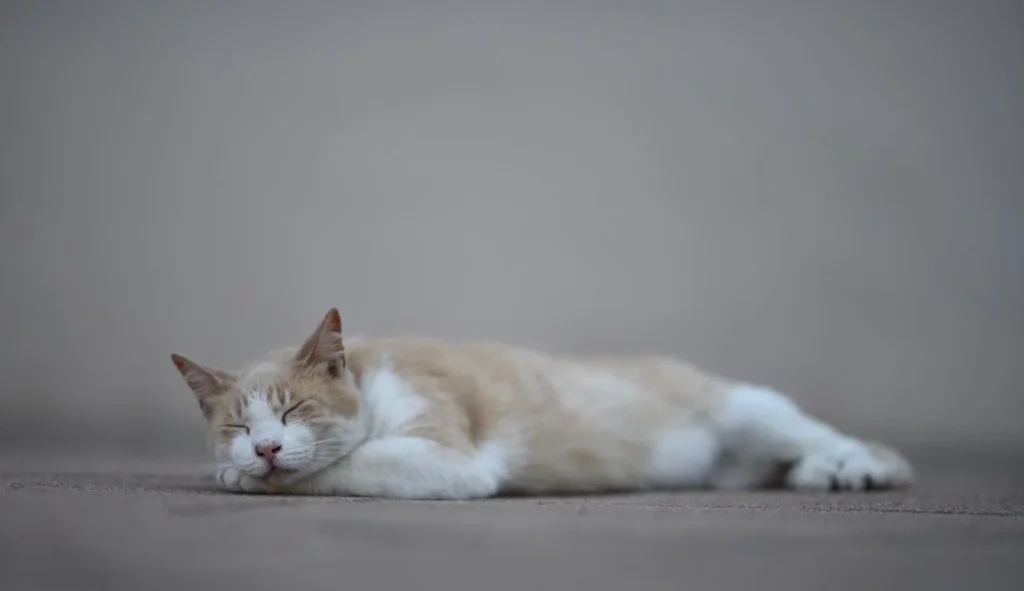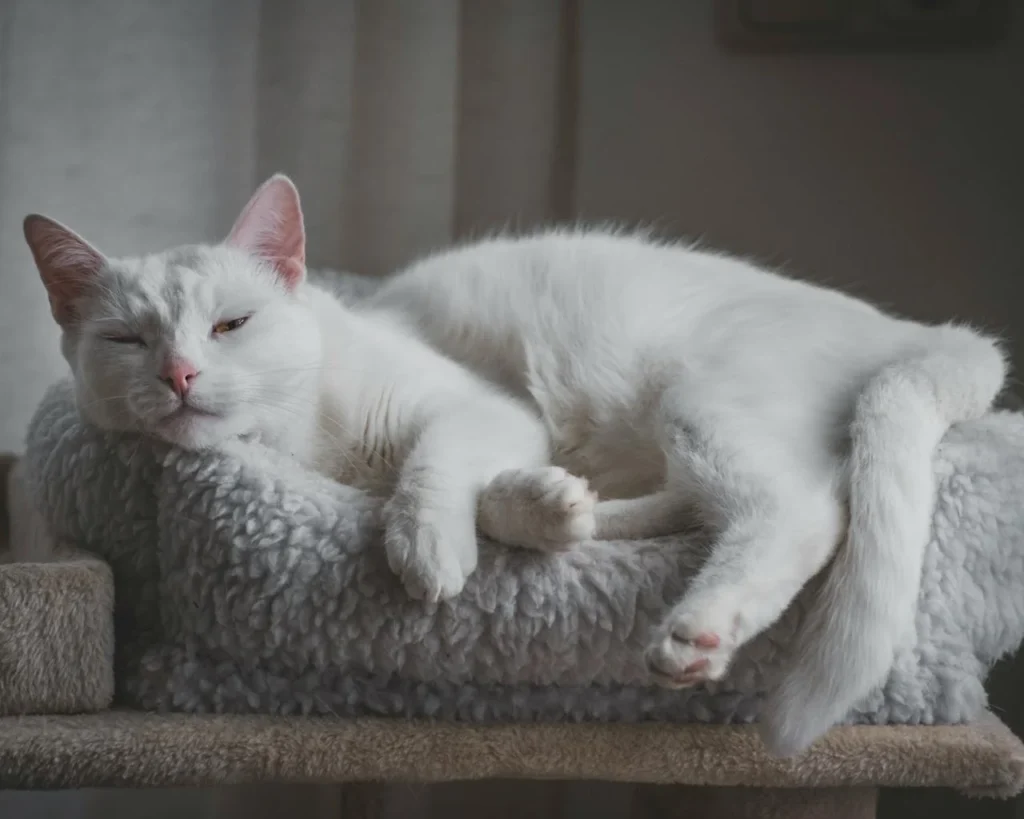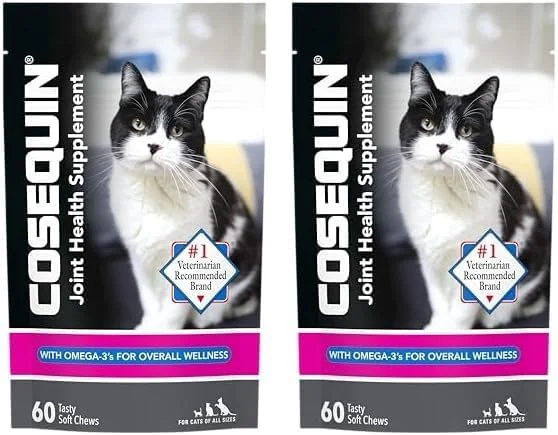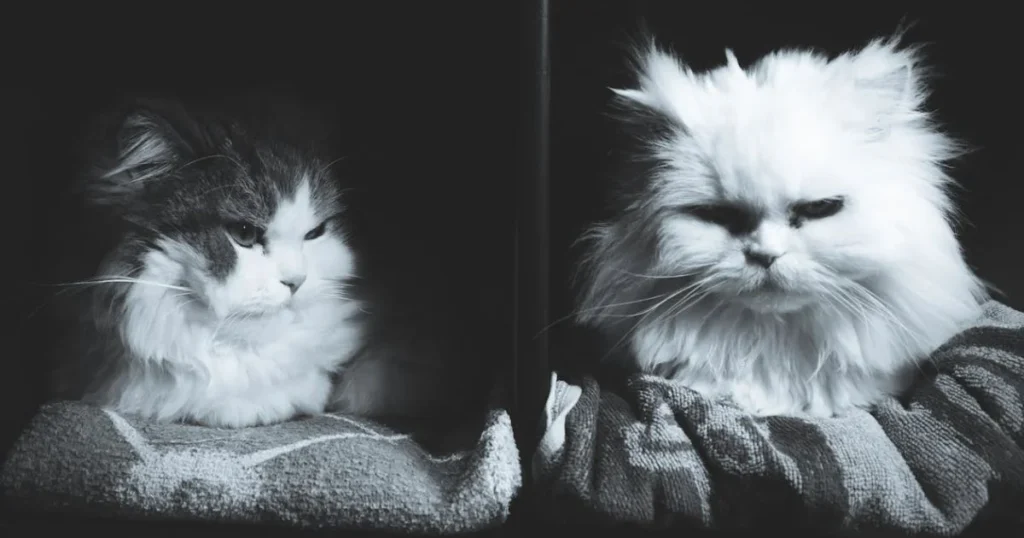As I gently brushed my 15-year-old tabby, Milo, I couldn’t help but reflect on how much he had changed over the years. The soft, silky fur I once knew had given way to a slightly coarser, greasy texture – a telltale sign of his advancing age. Milo’s once-vibrant eyes now held a distant, contemplative gaze, and his once-lithe movements had slowed to a deliberate, cautious pace. It was a poignant reminder that our feline companions, like us, eventually reach their golden years, and their needs evolve as they grow older.
If you’re caring for a senior cat, you know that their requirements differ from those of their younger counterparts. From adjusting their diet to creating a comfortable, senior-friendly environment, there are numerous considerations to keep in mind to ensure your elder feline thrives. In this comprehensive guide, we’ll explore the essential tips and strategies for providing the best possible care for your aging cat, empowering you to navigate the unique challenges and joys of feline geriatrics.
Recognizing the Signs of Aging in Cats
As your feline friend gets older, it’s key to notice the changes they go through. Feline Geriatrics is vital for caring for senior cats. It helps spot issues early and fix them quickly.
When Does a Cat Become a Senior?
Cats are usually seniors between 7 to 10 years old. But, with good care and food, many live longer. Watching their Elderly Cat Behavior and Senior Cat Mobility is crucial as they age.
Physical and Behavioral Changes to Watch For
- Decreased activity levels and reluctance to jump or climb
- Changes in sleeping patterns, such as increased napping or restlessness
- Alterations in grooming habits, leading to a matted or unkempt appearance
- Fluctuations in appetite or weight, which may indicate underlying health issues
- Signs of Cognitive Dysfunction in Cats, such as disorientation or changes in vocalization
These changes can be small and slow, so watching your senior cat closely is important. Regular vet visits can catch Elderly Cat Behavior or Senior Cat Mobility problems early.
By paying attention to aging signs in your cat, you can make their golden years better. Stay alert and talk to your vet if you see any worrying changes.
Adjusting Your Senior Cat’s Diet
As your cat gets older, their diet needs change. It’s key to keep them at a healthy weight. Too much weight can be hard on them. Choose a senior cat food that your vet recommends.
Choosing the Right Senior Cat Food
Senior cat foods have fewer calories and more fiber. This helps prevent weight gain and keeps their digestive system healthy. They also have more antioxidants, vitamins, and minerals for aging cats.
Look for cat food made just for seniors. It should have good protein, healthy fats, and all the nutrients they need.
Feeding Smaller, More Frequent Meals
- Older cats may digest food differently. Feeding them smaller meals more often can help.
- This method keeps their energy up and helps with health issues like diabetes or kidney disease.
- Breaking their food into three or four meals helps them digest and absorb nutrients better.
Every cat is different, and their diet needs change with age. Work with your vet to pick the best senior cat food. This way, your cat can enjoy their golden years in the best health.
“A well-balanced diet is essential for maintaining the health and well-being of senior cats. Adjusting your cat’s food can make a significant difference in their quality of life.”
Increasing Hydration for Older Cats
As cats get older, it’s more important to keep them hydrated. Senior cats might face issues like constipation or kidney disease. Drinking enough water can help manage these problems. Here are a few simple ways to encourage older cats to drink more.
Using pet fountains is a great way to boost hydration. These devices keep water fresh and appealing, making cats more likely to drink. Place water bowls in different spots around the house. This helps older cats with mobility issues find water easily.
Adding more wet or canned food to their diet is another good idea. This increases moisture intake. But, remember to slowly change their diet to avoid stomach problems.
- Use pet fountains to keep water fresh and circulating
- Place water bowls in multiple locations for easy access
- Add wet or canned food to the senior cat’s diet to increase moisture intake
By using these simple strategies, you can help your older cat stay hydrated and comfortable. Proper Senior Cat Nutrition is key to their health and happiness in their golden years.
“Keeping senior cats hydrated is crucial for their overall health and well-being. Invest in a pet fountain and incorporate wet food to make sure your older feline is getting the fluids they need.”
Monitoring for Signs of Pain and Discomfort
As your cat gets older, it’s important to watch for signs of pain or discomfort. Older cats often hide their pain, so it’s key to notice small changes in their behavior. Look for signs like less activity, not wanting to jump, changes in grooming, and eating less. These can mean they have arthritis and mobility issues.
Using the Feline Grimace Scale
The Feline Grimace Scale is a free app that helps spot pain in senior cats. It looks at facial changes like narrowed eyes, flattened ears, and a tense face. These signs can mean your cat is in discomfort.
Arthritis and Mobility Issues
Older cats can get arthritis or degenerative joint disease (DJD), which hurts their movement and comfort. If your cat is moving less, talk to your vet about treatments. Options include medicines, physical therapy, or changes to their home to make them more comfortable.
| Statistic | Value |
|---|---|
| Senior cats often hide their pain | Up to 90% of senior cats experience pain but show subtle signs |
| Arthritis in aging cats | Estimated to affect about 80% of cats over the age of 10 |
| Regular veterinary visits for senior cats | Should have check-ups at least twice a year |
| Dental disease in senior cats | Nearly 60% of senior cats over the age of 6 have dental disease |
| Early detection of pain in senior cats | Can improve quality of life by up to 40% |
Watching your senior cat for pain signs and using tools like the Feline Grimace Scale can help keep them comfortable. Regular vet visits are also key to catch and treat Arthritis and Mobility Issues that might affect their Senior Cat Mobility.

Prioritizing Dental Health
As your feline friend gets older, keeping their teeth clean is key. Dental problems can harm their Elder Cat Health a lot. In fact, up to 90% of cats over four have dental disease.
Preventing Dental Diseases
Regular vet visits and dental care are vital for senior Elder Cat Health. Older cats can get gum disease, tooth loss, and even tumors in their mouth. Brushing their teeth or giving them dental chews can stop these issues.
Regular Dental Check-ups
Senior cats need dental check-ups every six months. These visits help catch dental problems early. Professional dental cleanings are needed to remove tartar from their teeth.
| Dental Issue | Prevalence |
|---|---|
| Periodontal disease | Affects at least 80% of dogs over three years of age |
| Dental disease in cats | Up to 90% of cats older than four suffer from some form |
| Juvenile gingivitis | Can affect young cats between 3 and 4 months of age |
| Feline odontoclastic resorptive lesions (FORL) | Can cause tooth resorption in cats |
| Squamous cell carcinoma | A common oral tumor in cats |
By focusing on your senior cat’s dental health, you can avoid pain and serious health issues. This ensures their Elder Cat Health stays good for years to come.
Aging and Senior Cat Care: Tips for Your Older Feline
As your beloved feline companion ages, their care needs change. Cats usually become seniors around 10 years old. With the right care, they can live into their late teens or early twenties.
Adjusting their diet is a key part of caring for an aging cat. They might need smaller, more frequent meals to stay energetic. Wet food can also help keep them hydrated, preventing constipation and kidney disease.
It’s important to watch for signs of pain in senior cats. They might move slower, be less active, or not jump as much. This could mean they have arthritis. The Feline Grimace Scale can help spot pain in older cats.
Don’t forget about dental health for your aging cat. Senior cats are more likely to get dental diseases. Regular dental checkups and cleanings are crucial for their health.
Creating a senior-friendly environment is also key. Add ramps, soft landing pads, or orthopedic cat beds for comfort. Physical and mental stimulation can also keep their minds sharp and agile.
Regular vet visits are vital for senior cat care. Biannual check-ups and preventive care can catch health issues early. This ensures your cat stays happy and healthy in their golden years.

photo by Anna Tóth
“As cats age, their overall immunity tends to decrease, making routine wellness care even more crucial for their well-being.”
By focusing on these areas ofAging and Senior Cat Care, you can help your older cat stay comfortable and healthy. This way, they can enjoy their golden years fully.
Creating a Senior-Friendly Environment
As your cat gets older, it’s important to change their living space. This helps meet their new needs and keeps them moving well. A comfy and easy-to-get-around space is key for your senior cat’s health.
Providing Ramps and Accessible Litter Boxes
Older cats may find it hard to climb stairs or jump high. Ramps or steps can help them get to their favorite spots. Also, putting litter boxes where they’re easy to reach can stop accidents and stress.
Comfortable Bedding and Resting Areas
Senior cats need soft, supportive places to rest. Look for orthopedic beds or plush surfaces that ease their joints. Quiet spots in your home are best for their peace and security.
| Feature | Benefit |
|---|---|
| Ramps and accessible litter boxes | Improved mobility and reduced accidents for senior cats |
| Comfortable bedding and resting areas | Supports joint health and overall well-being for aging felines |
| Stimulating environment with toys and activities | Encourages mental and physical engagement for senior cats |
Creating a senior-friendly home lets your cat enjoy their golden years. They’ll be comfortable, safe, and happy.
Grooming and Hygiene for Senior Cats
As your cat gets older, it’s more important to keep them clean. Elder Cat Health can struggle with grooming, so you need to help. Brushing and trimming their nails are key tasks.
Brushing and Nail Trimming
Cats groom a lot, but older ones may not be able to do it as well. Older cats tend to have oilier skin and coats, leading to tangles and a greasy appearance. Brushing helps keep their fur healthy and lets you check for any health issues.
How often to brush depends on your cat’s fur. Some need it weekly, others more often. Brushing them when they’re relaxed makes it a good experience.
Trimming your Elder Cat Health‘s nails is also important. It prevents painful issues like nails growing into the paw pads. But, be careful as it might affect their balance.
Cleanliness Around the Litter Box Area
Keeping the litter box area clean is vital for senior cats. They might have trouble getting to the box or have incontinence issues. A clean, easy-to-reach litter box helps prevent accidents and keeps them clean.
Make grooming a positive experience for your senior Elder Cat Health. Be gentle, start slow, and stop when they show they’ve had enough. By focusing on grooming and hygiene, you can help your cat stay comfortable and healthy.
Scheduling Regular Vet Visits
As your feline friend gets older, regular vet visits are key for their Elder Cat Health. Experts say to visit every six months. This ensures your Feline Geriatrics get the care they need.
Biannual Check-ups
These exams include a full physical, blood work, weight checks, and dental care. Regular visits help your vet catch problems early. They can then create a care plan for your Elder Cat Health.
Preventive Care and Vaccinations
Keeping up with vaccinations and parasite prevention is crucial as your cat ages. A tailored Feline Geriatrics plan helps your older cat stay healthy and happy.
Regular vet visits and preventive care help your senior cat live their best years. It keeps a close eye on their Elder Cat Health.
Conclusion
As our cats get older, we must change how we care for them. Understanding their Feline Geriatrics needs is key. This ensures our senior cats get the care they need.
Improving Senior Cat Nutrition and handling Elderly Cat Behavior changes are important. We also need to manage Senior Cat Mobility and Pain Management for Senior Cats. Every care detail matters for their quality of life.
Regular vet visits and creating a Senior-Friendly Environment are crucial. They help our cats deal with Cognitive Dysfunction in Cats. This makes the transition to End-of-Life Cat Care smoother.
Caring for an aging cat takes time and patience. But seeing them thrive in their later years is rewarding. By focusing on their needs, we can ensure they live long, healthy lives. They deserve our love and care.
FAQ
When does a cat become a senior?
Cats are considered “senior” at 10 years old. With good care, they can live into their late teens or early twenties.
What are some physical and behavioral changes to watch for in an aging cat?
Older cats may move slower and be less active. They might not jump as much. This could mean they have arthritis or other health issues.
How should I adjust my senior cat’s diet?
Senior cats should not get too heavy. Choose a senior cat food with your vet’s help. Feeding smaller meals more often is better for them.
Why is increasing hydration important for senior cats?
Water is key for older cats, as they can have constipation or kidney disease. Use pet fountains, add wet food, and place water bowls everywhere to help them drink more.
How can I identify signs of pain or discomfort in my senior cat?
Older cats might hide pain, but look for signs like moving slower. The Feline Grimace Scale app can help spot pain or distress.
Why is dental health important for senior cats?
Good dental health is vital for senior cats to avoid gum disease and oral tumors. Regular dental checkups and care, like brushing, prevent bigger issues.
How can I create a senior-friendly environment for my aging cat?
Make your cat’s space easier to navigate as they age. Use ramps, place litter boxes where they can reach them, and provide comfy bedding.
How often should I take my senior cat to the veterinarian?
Take your senior cat to the vet every six months. These visits include blood work and dental checks to catch health problems early. Keep up with vaccinations and parasite prevention as their immune system weakens.

Nutramax Cosequin Joint Health Supplement for Cats – with Glucosamine, Chondroitin, and Omega-3, 60 Soft Chews (Pack of 2)


Good web site! I truly love how it is easy on my eyes and the data are well written. I am wondering how I could be notified whenever a new post has been made. I’ve subscribed to your RSS which must do the trick! Have a nice day!
thank you so much
Thanks for your help and for writing this post. It’s been great.
🙂
The articles you write help me a lot and I like the topic
Can you write more about it? Your articles are always helpful to me. Thank you!